---------------------------------------------------------
It is an unfortunate fact of life that if you keep animals in your backyard you are going to attract rodents. It doesn’t mean your farm is dirty or that you are messy, rodents are just everywhere and if you provide things like shelter, food, & water they are going to gratefully accept your hospitality. They will move in, build a nice nest and raise a family. Before you know it, the rodent population will be out of hand. It can be hard to eradicate an established population, but there are lots of things you can do to keep it from getting to that point.
Regularly inspect your coop
When you are at the bottom of the food chain, you evolve lots of tactics for evading predators. One of the traits rodents have developed is the ability to squeeze into very tiny spaces. The average full grown mouse can squeeze through a hole the size of a dime, a full size rat can fit through a hole that is only an inch across (a little bigger than a quarter). And those are the adults, so smaller adolescent ones can get through even smaller holes!
Inspect your coop regularly for holes or gaps. They have very sharp teeth that can enlarge a tiny gap really quickly, so it’s best to fill in any holes as soon as you find them. I would suggest when making the repair you first cover the hole with strong hardware cloth or metal sheeting, followed by a wood board to patch it. Once they find an entrance they are going to be back frequently and will tell their friends so if they are already getting in at one point you want to be sure they can’t chew their way back in.
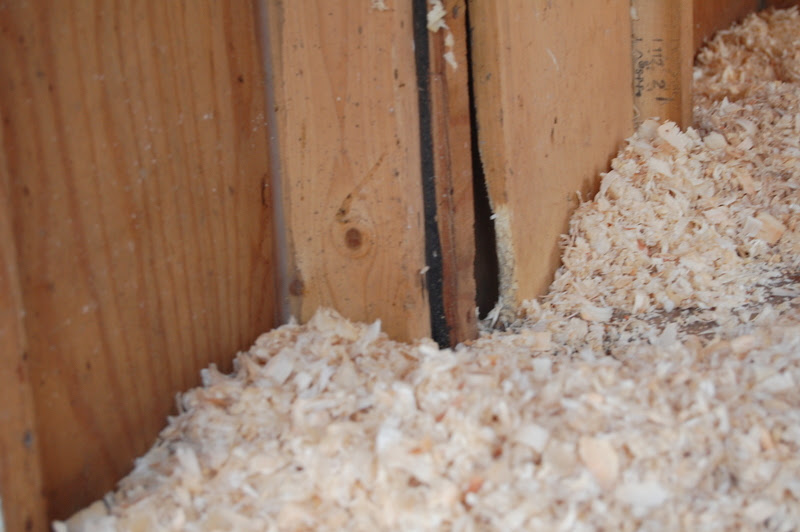
Build your coop on stilts
Having your coop raised up a couple feet off the ground gives them less points of entry. Yes, they can climb pretty well, but it’s much easier to chew a hole through wood that is sitting on the ground than one that is 2 feet in the air.
Cover vents & windows with hardware cloth
Rodents can easily bend chicken wire into a hole they can squeeze through. Be sure all ventilation holes & windows are covered with hardware cloth screens that are securely attached.
Protect the foundation
Rats like to burrow in the ground to build their nests, so once they find a good food source, they will want to build their nest nearby. Digging under the coop is the perfect location for them. Around the perimeter of your coop, dig down two feet and bury hardware cloth. This is helpful to do for both raised coops and large coops (like sheds) that might be resting on a few concrete blocks as a foundation.
If your coop is very large and has a traditional poured cement foundation it is really unlikely they will borrow underneath. Don’t store firewood piles, scrap lumber or brush around the coop. You want to avoid anything they could use to make their nest in. Keep the landscaping around the coop trimmed.

Collect eggs daily
It isn’t just the feed they are after, they love to eat eggs as well. Collect them often to remove the temptation. You don’t want them eating your eggs, and you definitely don’t want them hanging out and pooping in the nest boxes.
Close your coop at night & don’t leave open feed outside
Rodents certainly can and do come out in the middle of the day, but much of their activity will take place at night. Closing up your coop every night not only keeps your birds safe from predators, but also cuts down on rodents coming in to empty the feed bowls. If you normally feed your flock outside of the coop in the their run, take the feed bowl inside at night when you close them up. Having an unattended bowl of feed sitting out in the run overnight is like having a neon “Eat Here” sign. I keep my feed inside the coop, but anytime I notice there is rodent activity I start taking all feed dishes in my house at night. The birds will be ok without food overnight, and it will encourage the rodents to move along.
In the hot, dry summer if you keep your water dish outside you should dump it at night so you don’t attract rodents looking for a drink. Likewise in the winter when liquid water is hard to come by, a full heated bowl of water is just as welcoming as food.
Store feed bags in metal bins
It’s convenient to have extra feed on hand to cut down on trips to the store, but all that extra feed is a rodent buffet waiting to happen. They can easily chew a hole in feed bags and can chew through plastic bins. Get some metal trash cans with tight fitting lids to keep your unused feed in.

Food & water bowl placement
If you feed your birds inside the coop, be strategic about where you put the feed. A feeder hanging from the ceiling in the center of the coop is an excellent placement. Rodents are always on the lookout for predators (and chickens do eat rodents), so they will creep along the walls and just dash out for a mouth of food, then come back to the shadows to eat it. Keeping food along the wall in an open bowl just makes it easy for them.
My ducks have a hard time eating out of the hanging feeders they share with my chickens. I have taken two concrete blocks and pushed them together and placed the feed on top of that in the middle of the chicken barn floor. We have another two concrete blocks with the waterer a few feet away. Raising it off the ground keeps shavings out and also makes it scarier for rodents to get to. Try to avoid scattering feed or scratch loosely on the floor of the coop or in the run. Anything left uneaten is just there for the taking.

If you already have an infestation
Definitely keep using the above mentioned prevention methods. Anything to make your coop & yard inhospitable to rodents is a step in the right direction. Poisons are a tempting option, but really need to be a very last resort. Covered poison containment traps are an absolute must when using rat poison to keep your birds from nibbling the poison bait, but your birds could still be in danger. Often a rat will take the poison bait, but go elsewhere to die. If your chicken then finds & eats that dead rodent, they will ingest the poison as well. Even if your chickens don’t get to it, some wild animal will likely eat it eventually and would be poisoned.
There are newer rat baits that you can use that are safe around livestock. Some, like Rat-X, work with the rat’s unique digestive system to lethally dehydrate them. Agrid3 is an EPA approved organic rat bait that essentially floods the rat’s system with lethal levels of vitamin D. Some have had luck by putting out pans of soda or instant potato flakes. Rats & mice are unable to belch or pass gas so these products are lethal for them. Even though these methods & products are safe to use around pets & livestock, I would still recommend putting them in a covered bait station or in areas your livestock can’t access just to be safe.
Snap traps are a good option, but you need to make absolutely sure that your birds/pets/children can’t access them and get hurt. Your local feed or farm store should sell containment boxes where you can put the trap inside to safely use snap traps.
Many people have success with using water bucket rat/mouse traps. You use a 5 gallon bucket with water and set up a baited roller or flip down cover across the top. The rat/mouse walks on the roller or cover and is dumped into the bucket of water where they drown. If you search YouTube for water bucket mouse trap you will find dozens of tutorials.
If you have the facilities to care for a barn cat, introducing a natural predator is always a good way to keep rodents down. Many shelters have some cats that are not suitable for pets because they are feral, but they can be adopted as barn cats. You can also check with other local farmers to see if they know of someone with a litter of barn cats. It’s best to ask if the cat (or mother cat if you are getting a barn kitten) has any experience around chickens or ducks – you don’t want to get a cat that will also chase after your birds!
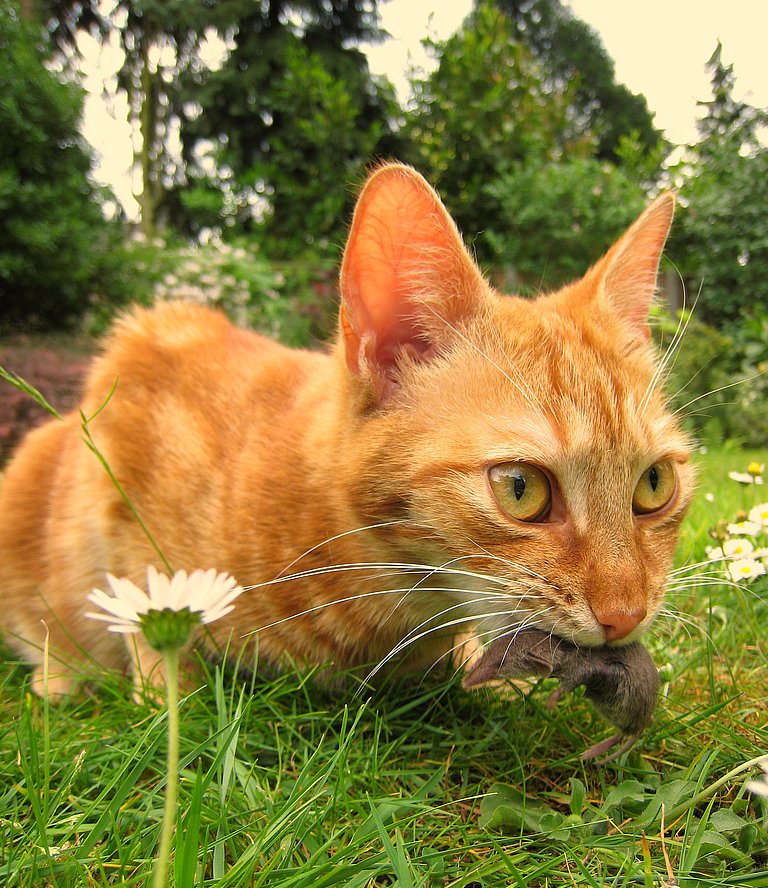
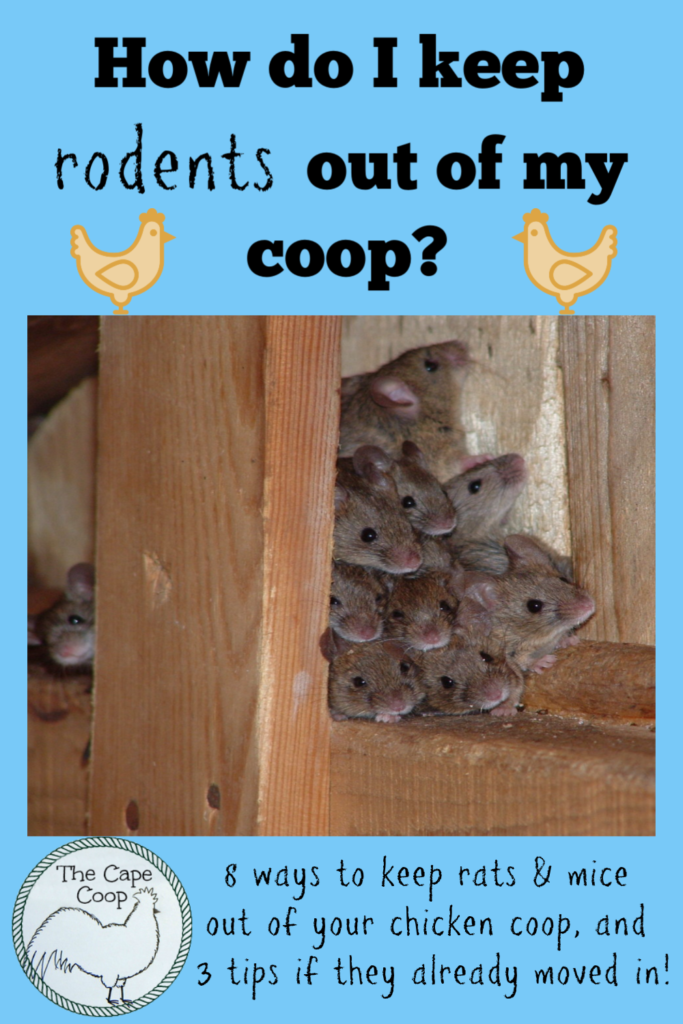

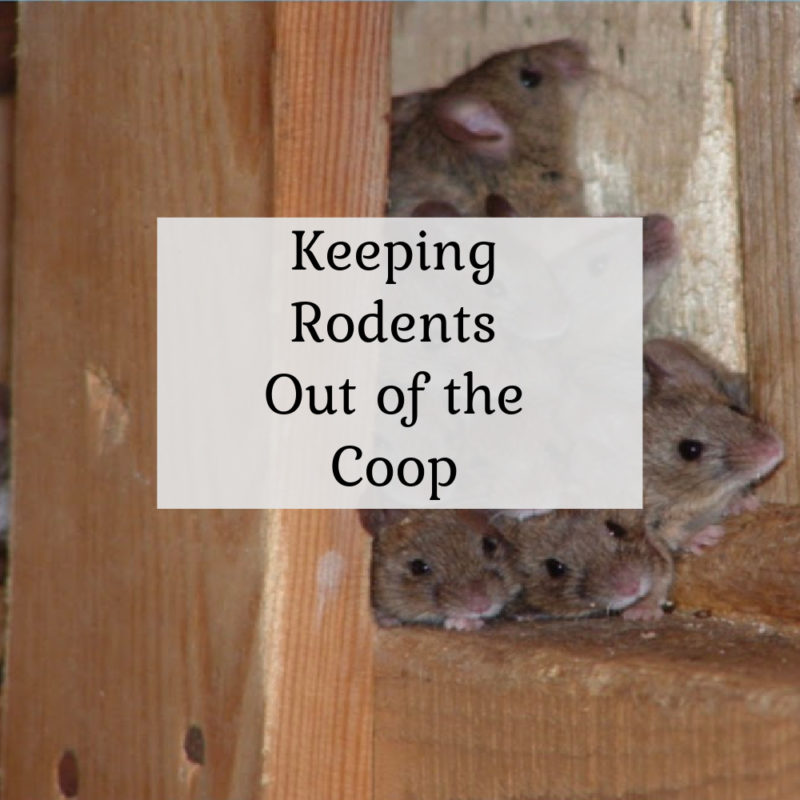

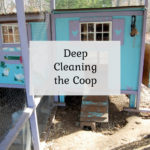
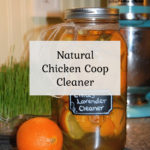
MaryAnn
Wednesday 1st of February 2023
do rats eat chickens
Liz
Friday 3rd of February 2023
Rats can eat chicks or eggs, but they would not be able to take down a full grown chicken.
Keri Ferraro
Monday 13th of July 2020
Do Ducks eat rodents too?
Jill
Wednesday 14th of February 2024
@Keri Ferraro, I have 8 female cats and 1 male cat they have taken care of all Rats and and Mice. They don't bother my Hens 👍
Liz
Monday 13th of July 2020
Ducks can eat rodents, but bigger ones like rats would be difficult for them. But small mice they could certainly eat
Vivienne
Sunday 12th of July 2020
I have two ducklings Beautiful day today they’ve had their first time in the garden 4 weeks old in their run area that will now be their home ,safe secure house and run .They are sitting in the grass By the pond ,just opening and closing their beaks Is this normal I don’t know if I need to do something
Liz
Sunday 12th of July 2020
If it's warm out they are probably just panting to cool off. It doesn't seem like something to worry about :)
Paul
Thursday 25th of June 2020
This may sound a little gruesome, but it is nature, and nature can be a bit gruesome at times. Chicken are little dinosaurs, and I have always taught mine to hunt and kill rodents... Chickens are omnivores and need some meat on occasion, what better way to take care of any nutritional deficiencies than rodents or road kill or kitchen scraps (as long as they are not chicken. I never feed an animal themselves, it’s very wrong, and as mad cow disease reminded us, it’s dangerous).
Get your chickens good and hungry if you need to (usually you don’t), and toss them a few dead mice. Once the devour those, toss them a few live mice. Once they kill and devour them, you will never have to worry about mice or rats. You can do the same thing with snakes if you have a lot of dangerous snakes in your area but don’t do it if you have beneficial snakes like king or garter snakes (they tend to ignore them unless they know they are meat). I have always found most chickens will naturally go after mice or learn it from a fellow chicken. But occasionally they may need help making the association that rodents are food. Help them make the association if they need help, once you do, they will never ignore them again and will kill and eat any they come across.
Check out YouTube and you can find a lot of videos of chickens catching and eating rodents. When life hands your chickens free food, teach them to eat it. (Pigs are omnivores too and also love rodents and can easily be taught to kill and eat them). The more animals you have that will kill and eat rodents, the less likely it will be for you to develop a rodent problem (even if they are coming in from outside your property or attracted to spilled feed).